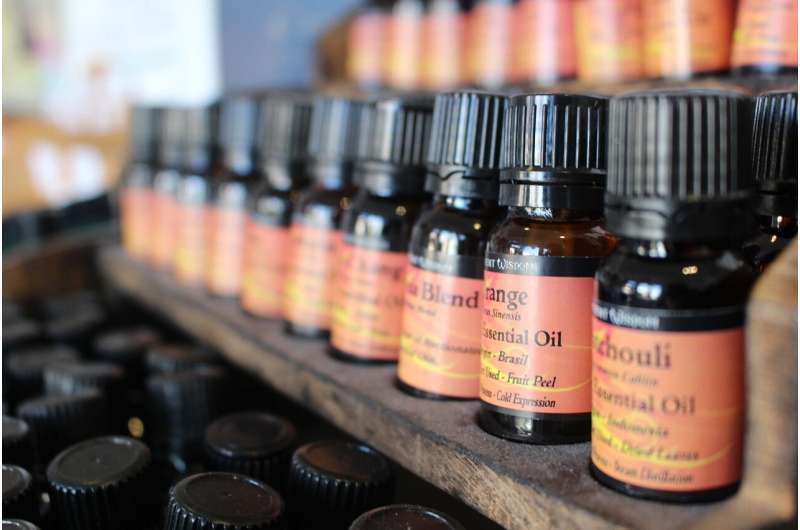This article has been reviewed according to Science X's editorial process and policies. Editors have highlighted the following attributes while ensuring the content's credibility:
fact-checked
peer-reviewed publication
trusted source
proofread
Study finds people who use alternative medicine favor risk and novelty, and distrust science

Over 40 percent of Canadians have used at least one risk-associated alternative health-care treatment in the past 12 months, says a new UBC study published in PLOS One.
The researchers explored alternative health-care therapies where the proven benefits do not justify the risks involved. They found that people who access these therapies tend to be wealthier, like novelty and taking risks, and are also more likely to distrust conventional medicine.
The multidisciplinary study between UBC School of Nursing and the University of Alberta Health Law Institute involved a survey of 1,492 Canadians ages 16 and over and is the first to explore risk-associated alternative health care use in Canada, said UBC professor Dr. Bernie Garrett.
"Many alternative health-care therapies are harmless, but few can result in physical injuries or death. As people are now more frequently accessing riskier alternative health care, we wanted to understand why they would use unproven and potentially harmful therapeutics instead of medically established ones," said Dr. Garrett. "Our aim was also to establish factors that might predict engagement behaviors."
Susceptible to persuasion, and skeptical of science
Among those who engaged in risky alternative health care, physical manipulative therapies such as cervical chiropractic manipulation, and potentially toxic herbal and nutritional supplement use, were the most common. They were accessed by 68 percent and 55 percent respectively. At least one in 10 users engaged in higher-risk invasive or untested procedures such as injecting potentially harmful substances into veins.
The researchers also used a variety of existing psychometric tools to see if they could predict the likelihood of engagement with riskier alternative health care. They found two tools were particularly effective: one that measures susceptibility to advertising techniques, and another that assesses trust in science.
Individuals who had more trust in science were less likely to engage in alternative health care than those who had negative attitudes about science and scientific authority. People who were more likely to use risky alternative medicine were more susceptible to social pressure, had positive attitudes towards advertising, a greater desire for novelty, and a higher tolerance of risk generally.
"This study provides key evidence of the role played by advertising and social media marketing in promoting alternative health care. This type of marketing is less regulated, and the advertisements can be very persuasive, often using positive role models like celebrities and influencers. They hardly mention side effects while promising the ability to control one's own health outside of conventional medicine," said Dr. Garrett.
Gender and wealth also play a part
Riskier alternative health care uptake in the Canadian public was also found to be influenced by socioeconomic factors, including gender, age and wealth:
- Women were more likely to choose alternative health care, likely due to targeted advertising that capitalizes on idealized body images and their role as primary caregivers.
- Older respondents, particularly those over 55, were more hesitant, possibly because they are more experienced.
- Wealthier individuals and those with higher education were more likely to use alternative health care, likely due to associated costs of such treatments.
- Contrary to some other findings, Canadians of Asian descent were less likely to use risky alternative health care. Reasons for this were unclear, although experience and financial barriers may be a factor.
As engagement in risk-associated alternative health care increases, the researchers emphasize that health-care practices and the advertisement of health-care therapies should be based on scientific evidence and subject to better advertising regulations to protect Canadians from potential harm.
"Identifying and educating the public on the significant risks encountered with some alternative health-care practices is an important part of Canadian public health promotion. It isn't all harmless," Dr. Garrett said.
More information: Bernie Garrett et al, Demographic and psychometric predictors associated with engagement in risk-associated alternative healthcare behaviours, PLOS ONE (2023). DOI: 10.1371/journal.pone.0291016



















